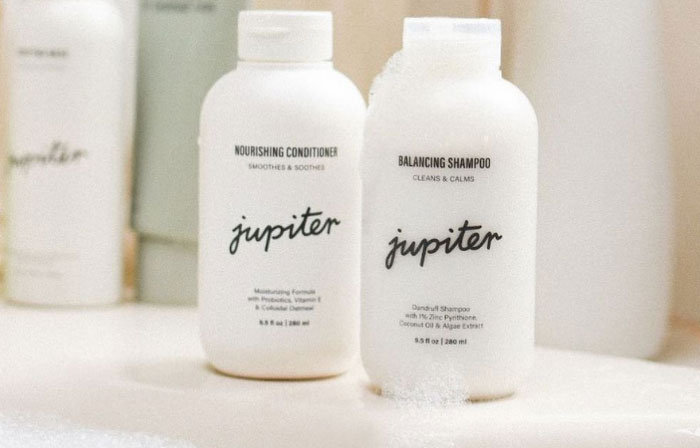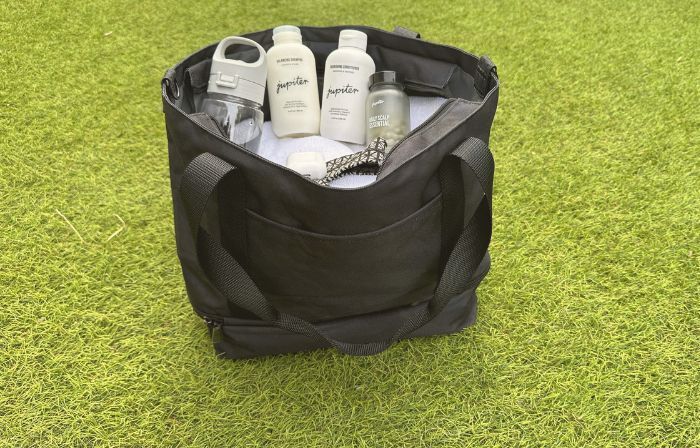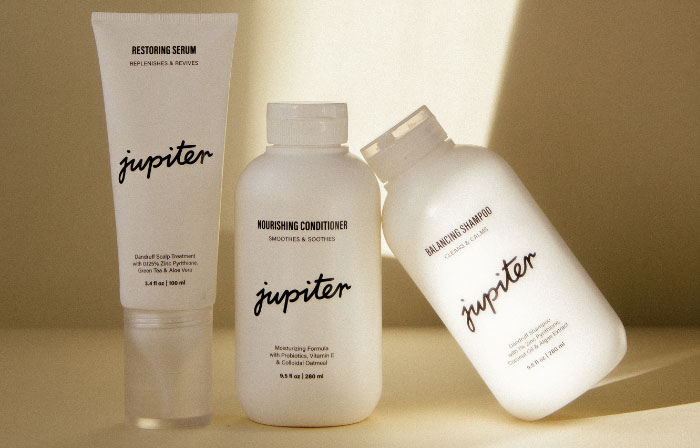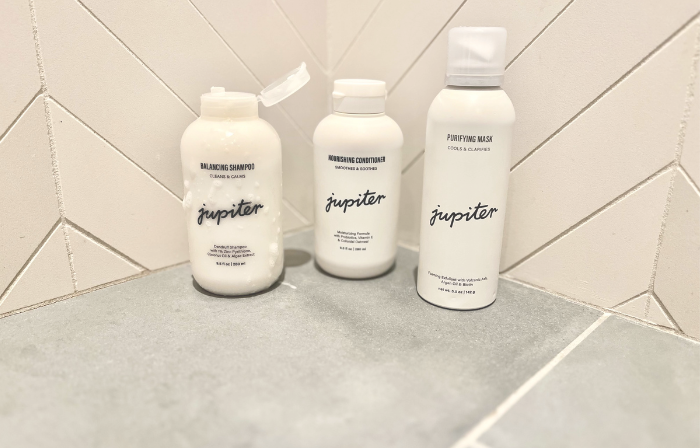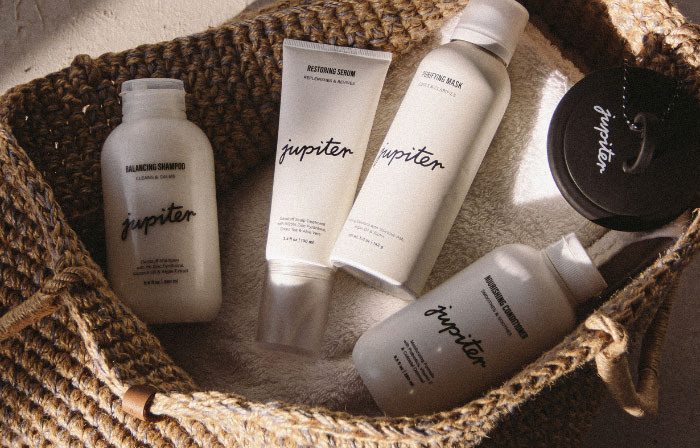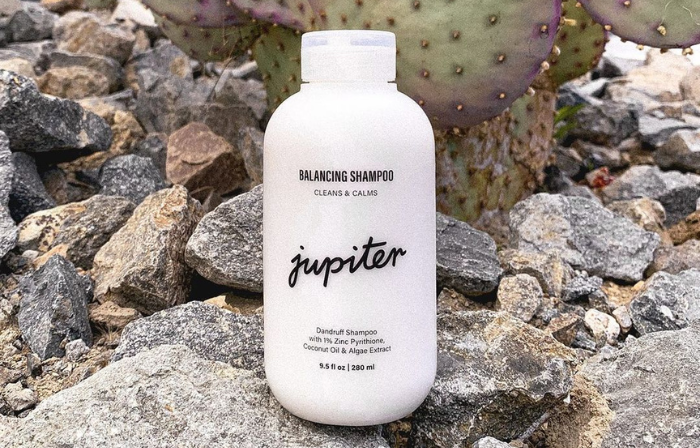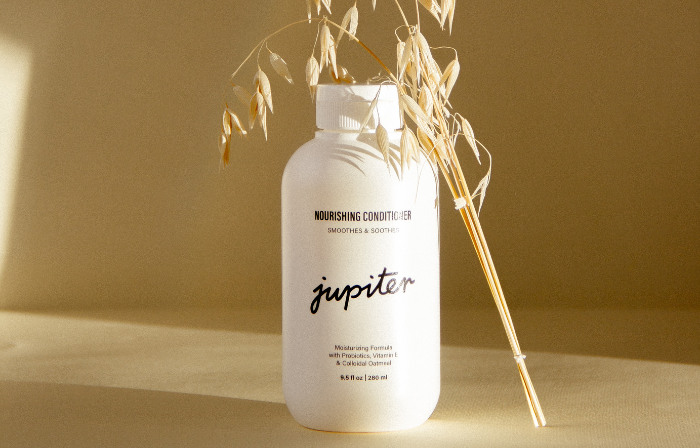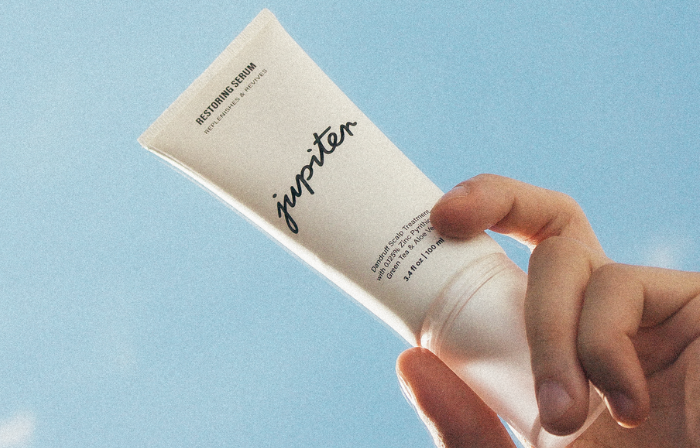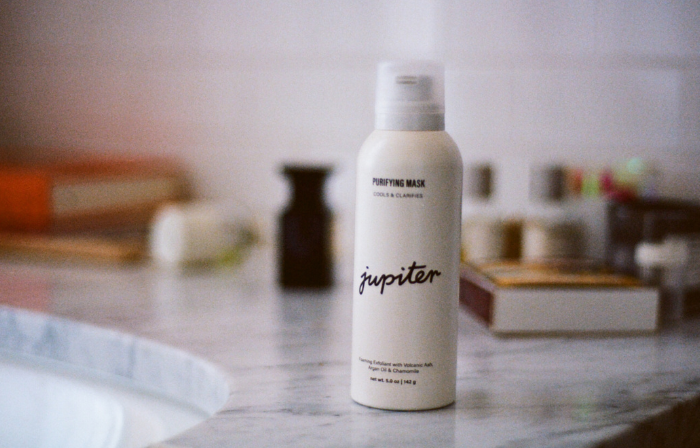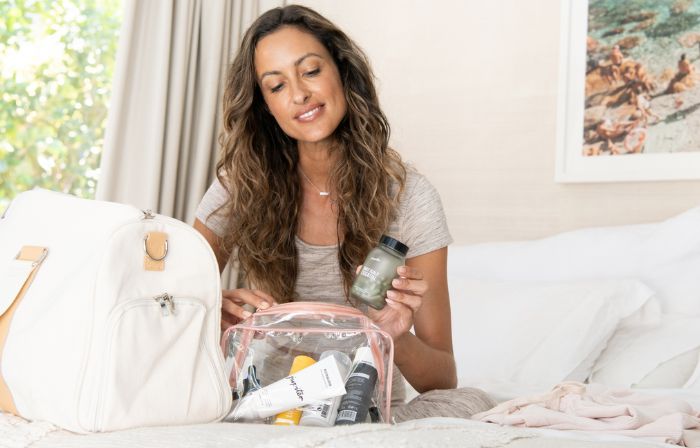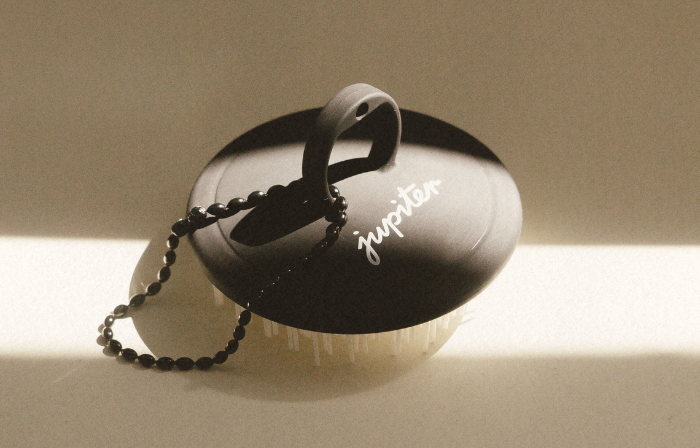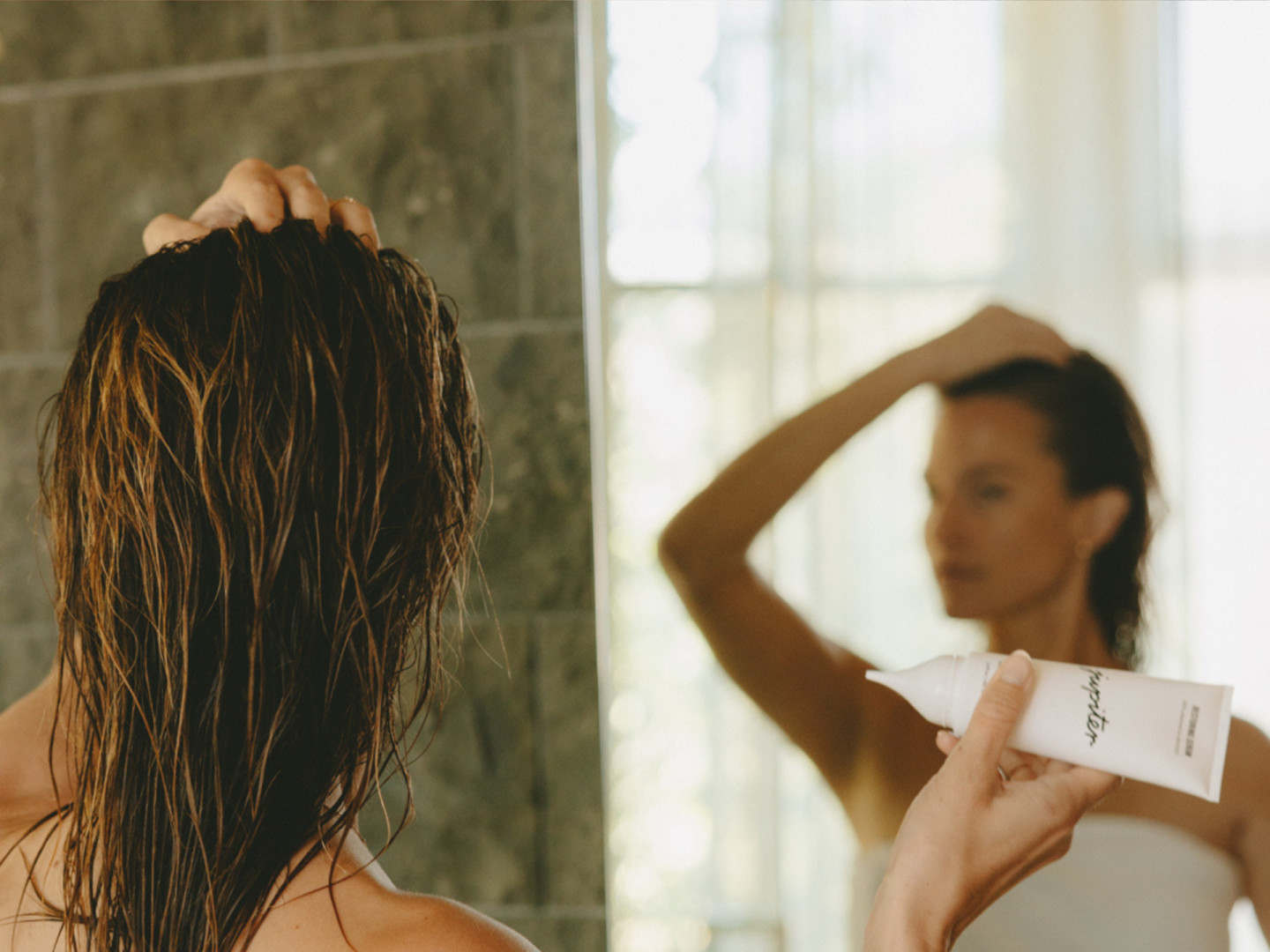🫶🏻 OUR 5% PLEDGE TO HER
#STRONGHERTHANYESTERDAY - WE DONATE 5% TO WOMEN-DRIVEN CHARITIES. LEARN MORE.
There is truly nothing like a good hair day.
When our hair is feeling healthy and smooth, everything just seems a little bit more manageable. On the flip side, a bad hair day can have the opposite effect. Factors like frizz, breakage, and an irritated scalp can tank our confidence and keep us reaching for the hair tie.
Most people want a healthy scalp and beautiful hair, but with so many products out there (and so many opinions on the internet about how to get them), it can be hard to know where to start.
The truth is, everyone’s hair is different, and so there’s no magical one-step ingredient or product that will lead you to hair-vana. Sorry to disappoint.
But there are steps we can take to achieve voluminous, soft, and smooth hair. From the food we eat to the products we keep in our showers, hair health is affected by many factors and it starts at the scalp.
While it can be a process to find your perfect hair routine, it’s well worth the time and effort. Keep reading for our guide to achieving your best hair day.
1. Know Thyself: Identify Your Specific Hair Type and Texture
Between genetics, diet, and climate, everyone’s hair and scalp is different and requires a unique regimen to keep your hair looking its best and your scalp nourished.
That’s why it’s so important to understand what type of hair you have. Here are three factors to consider when identifying your hair needs:
Your Type and Texture
Generally, we break hair down into four categories: curly, coily, straight, or wavy.
Your DNA decides your natural hair pattern, and each type has different care techniques.
Your Activity Level
How often you exercise will determine how often you wash and rinse your hair. Along with your exercise habits, if your hair is naturally more oily, you may need to wash your hair more often than if your hair is naturally drier.
Your Product Regimen
You may be over or underusing products, which can contribute to your hair feeling heavy or frizzy.
Take our quiz to help you understand the regimen that your scalp and hair type is craving.
2. Make Diet Your Friend: Eat the Food Your Hair Craves
Our hair responds a lot to what’s on our plates. When we eat foods that benefit our hair and scalp, we can see the results with smoother, stronger hair. Here’s what to fill your grocery cart with to help feed your hair.
Protein
Did you know that your hair is mostly made up of protein and collagen? It’s true. Maintaining a solid intake of protein in your diet helps support scalp hydration and the health of your hair.
Try eating more lean meat, poultry, eggs, nuts, lentils, and tofu for added protein.
Omega-3 Fatty Acids
Increasing your intake of omega-3 fatty acids may help stimulate your hair follicles and sebaceous glands, contributing to new, strong hair growth. Omega-3 fatty acids are also known to fight inflammation in the body which may help address dandruff and scalp discomfort.
Fill up on fish, flaxseed, cottage cheese, and yogurt to get more omega-3 fatty acids and biotin in your system.
Zinc
We tend to believe that healthier hair starts from within, with a balanced diet of vitamins and minerals. One important mineral to include in your diet is zinc. When our scalps are deprived of zinc, it can lead to hair loss. Luckily, nuts like Brazil nuts, walnuts, pecans, cashews, and almonds are tasty and rich in zinc. Make sure you have a robust diet filled with fruits, vegetables, and clean water to get the most zinc for your buck.
3. Your Diet Is Also Your Enemy: Avoid These Things To Keep Hair Healthy
As some foods help support healthy hair, there are foods, drinks, and lifestyle choices that lead to breakage and poor hair and scalp health.
Be wary of crash or highly restrictive diets, as they can limit your access to powerful vitamins and nutrients. Your hair, just like the rest of your body, relies on a rich and strong caloric intake. Restricting too much can lead to unhealthy hair.
If you’re looking to include olive oil, jojoba oil, almond oil, coconut oil, and vitamin c supplements, don’t forget to incorporate foods like avocados and salmon into your healthy hair diet.
And lastly, you should be conscious of your consumption of alcohol. Overindulgence in alcohol can hurt or damage your hair follicles.
Simply put, if you place your health as a priority, your hair and scalp will follow suit.
As some foods help support healthy hair, there are foods, drinks, and lifestyle choices that lead to breakage and poor hair and scalp health.
4. Be Kind to Your Head: Protect Your Hair With Preventative and Protective Techniques
A good blow-out can make us feel confident and stylish, but excessive heat on our scalp can cause long-term breakage, and lead to a dry scalp. It’s always a good idea to limit the heat you’re applying to your hair and save heat styling for special occasions, particularly when dealing with dry or damaged hair.
Here are some other techniques to consider when styling your hair.
Seriously, lay off the heat. Air dry your hair as often as possible and use the lowest heat setting when using a blow dryer and hair straighteners to retain moisture. Sometimes a blow dry isn’t worth what it’s doing to your locks and scalp.
Switch up your placement of hair clips and bobby pins in different locations to avoid breakage in the same spot.
Sleep on a silk or satin pillowcase, which is naturally moisture-wicking. This is an especially good tip for people with dry and brittle hair that needs to retain as much moisture as possible.
Practice daily scalp massages to promote blood flow and clear away buildup from products like dry shampoo and gel. (Check out this scalp brush for the ultimate feel-good scalp massage).
Trim split ends on a regular basis.
Use a wide-tooth comb or brush to detangle. Tangles are frustrating, but you should wait until your hair is dry to undo them. Detangling wet hair is a recipe for disaster when it comes to breakage, because your hair is weakened when it’s wet.
Minimize damage with a heat protectant spray on the hair cuticle.
Give your hair a quick cold water rinse at the end of showers to seal your hair strands and lock in moisture.
Every month or so, apply a deep conditioner product to your hair, especially if you’ve noticed dry scalp-related flaking. Deep conditioners work harder to give moisture and hydration to your scalp than your average conditioner.
Treat your hair kindly, especially when it’s wet. Wet hair and damp hair are three times more vulnerable to breakage. Try not to smother it with a towel or overbrush it — comb products through evenly from root to tips and then let it be.
5. Choose Wisely: Read the Ingredients Label on Your Hair Care Products
The products we use on our hair play as much of a role in hair health as the food we ingest. Choosing the wrong products with harmful ingredients can have devastating effects on hair growth and can be irritating to the scalp.
That’s why it’s so important to look closely when you’re purchasing products like sulfate-free shampoos, hair masks, conditioners as well as styling products like sprays, gels, and serums. It’s also a good idea to choose products that suit your specific hair type, as everyone’s hair is different and may benefit from different formulas or ingredients.
Sulfates can strip your hair and scalp of their natural oils and cause significant hair damage. Avoid products that include ingredients like ammonium lauryl sulfate or sodium lauryl sulfate.
You should also look out for terms and language like “clean” appearing in a brand’s marketing and advertising. Because the FDA does not legally define “clean,” brands can use it to describe any product features, glossing over harmful chemicals that appear on their labels.
Hair products can be surprisingly deceptive when advertising ‘natural’ ingredients. This is something called greenwashing, in which a brand wants you to believe it’s using natural ingredients and sustainable practices but is actually just marketing.
When in doubt, read the ingredient label.
And while we know it’s tempting, given some of the content and language on the internet and social media, try to avoid DIY solutions. Homemade hair mask recipes haven’t been vetted for safety, and applying oils straight to the scalp can actually be more dangerous than beneficial.
Hair care products need to go through thorough testing to ensure they’re safe for your skin and hair, and that they’re professionally formulated with other ingredients that ensure safety and efficacy. Your scalp is not a testing ground!
Always question the integrity of what you put on your scalp and ensure that your standards for safety, ethical sourcing of materials, and proven science are being met.
Some Lasting Thoughts on Lasting Hair Health
We always like to think about the path to hair health as a marathon, not a sprint. It’s a journey and a process to discover what works best for your specific hair type. And as our hair texture and scalp health can change when we get older, it’s important to be open to trying new things and growing with your locks.
The biggest piece of advice we can offer to achieve healthy, happy hair? Make it a priority. Once you find what works for you, remember that consistency is key. When you combine a healthy diet, the right products, and gentle care, your hair will thank you. Hair tips to remember:
Research your specific hair type and texture to know which product works best for you and your needs.
Eat foods rich in protein, omega-3 fatty acids, and zinc. A nourished and balanced diet can help support the hair growth cycle.
Avoid crash dieting, stress, and overindulgence in alcohol. These traumatic changes can leave marks on our body’s health and hair’s health.
Treat your hair with care and consideration when styling. Try to lay off hot tools and only use them on special occasions.
Read (and reread) your product labels. Ask your hair stylist for recommendations for chemical and dye-free color treatments, so your stylistic choices aren’t getting in the way of your hair’s health. If you’ve ever watched “bleach fail" videos on YouTube, you’ll understand why it should be avoided.
Hair Care Is No Different
It’s essential to pay attention to the brands you use and make sure that you’re not applying anything harmful or destructive to your scalp. Building a hair care routine that puts your scalp’s health first might feel difficult, but once you see how it can improve your hair’s texture, you’ll understand why it’s so important.
Our hair is sensitive and requires some tender loving care to thrive. Just like skin care, consistency and patience is key. So, are you ready to treat yourself to the hair and scalp care routine you deserve? Shinier, fuller hair is possible if you take steps to treat your locks with the care and nutrients they deserve.
Start shopping Jupiter’s line of scalp and hair care products, formulated with natural and innovative ingredients to promote nourished, healthy-looking hair and a balanced scalp.
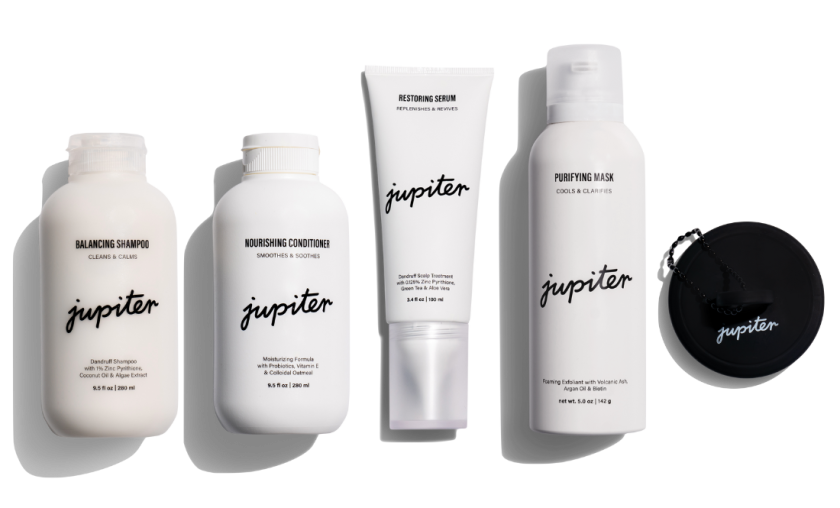
Built for those looking to address constant or moderate to severe flaking, redness, or irritation and want their mane left looking refreshed and silky smooth.
